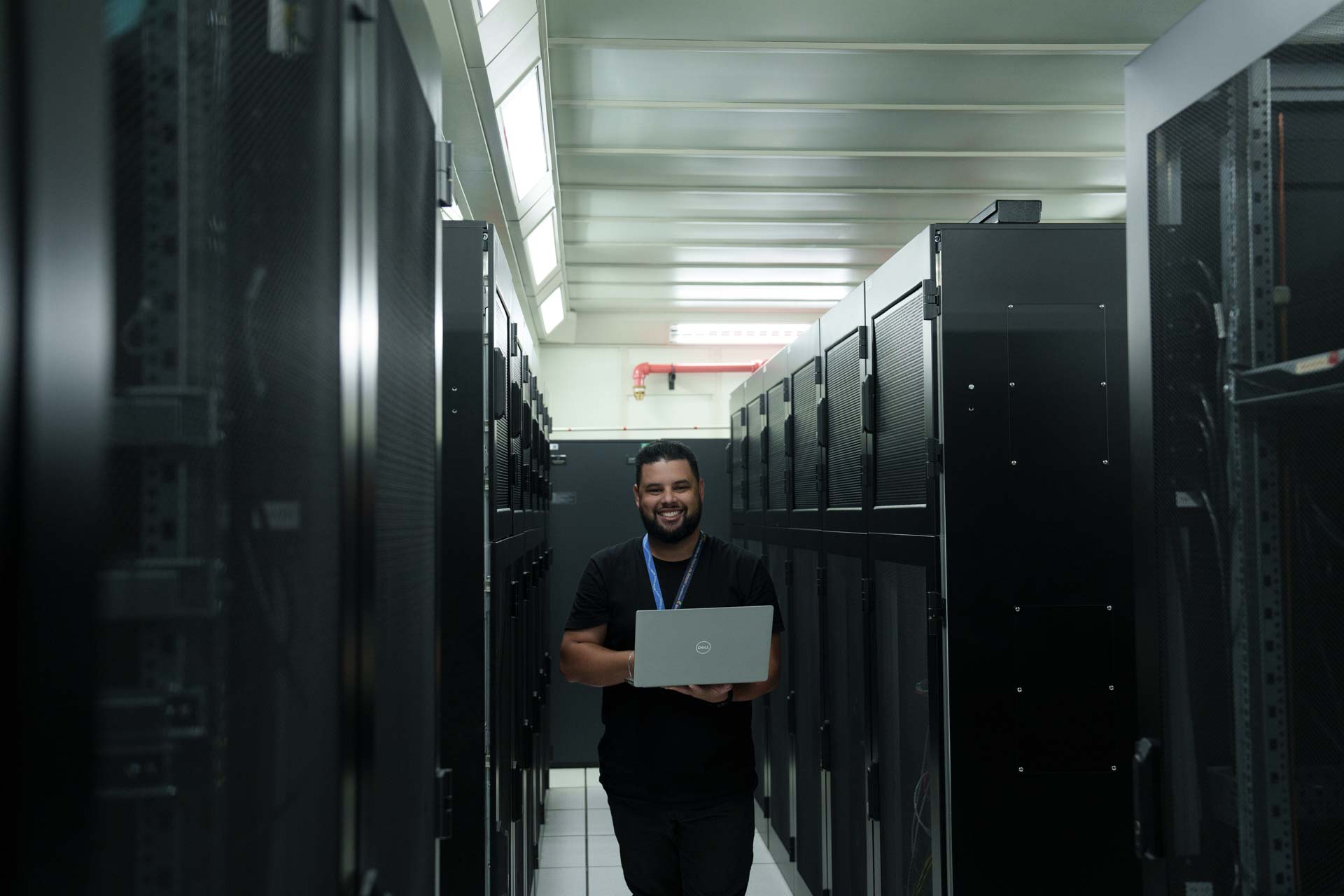Grupo Boticário’s Digital Security Guide

Grupo Boticário’s Digital Security Guide

taking care of your online self!
In a world full of technology, practicality and convenience, there are risks and digital threats that can compromise your security and privacy.
This is where Grupo Boticário’s Digital Security Guide comes in, a true partner to help you navigate this universe more securely: here you will find tips, guidelines and overall good practices, ranging from choosing secure passwords to protecting against scams.
Among the commitments of our Group are: the safety and well-being of the environment and the community. This guide is one more way to do this, contributing to the digital security of the people in this ecosystem. Count on us to make your online experience safer and, for sure, beautiful!

real care for your virtual life!
Check out the following tips from Grupo Boticário to help you protect yourself in the virtual world:
Protection and security in the digital environment
Passwords
Having a strong password is paramount to prevent malicious individuals from accessing your personal information, social networks, bank accounts and other sensitive data. Weak passwords, based on common words (like @password1234) or personal information that can be easily discovered (like your birth date), can put your privacy and security at risk. Here are some tips to help protect yourself:
- Create long, easy-to-remember passwords based on a phrase or piece of music that makes sense to you – easy to remember, hard to figure out!
- Get creative and diversify: combine upper and lower case letters, numbers, and special characters.
- To further strengthen security, change your passwords periodically and use a different password for each account – a password manager can help you in this mission.
Multiple Factor Authentication (MFA)
Protecting your online accounts with a strong password is critical. But having only one password assigned to each account may not be enough to keep your information secure. MFA can help: it’s a method that provides additional layers of security when accessing the account. In addition to your password, you need to provide another “factor” to prove that it is really you who is accessing the account.
- Activate MFA whenever this option is available in emails, social networks, banking and other online accounts.
- Explore different authentication factors: authentication apps, biometrics, SMS, and email verification applications are some of the most common methods.
- Never provide verification codes or tokens to a third party, as it may be someone trying to get your MFA data to access your accounts improperly.
Be careful with links and attachments
Got a message with a must-see promotion and a link to click? Perhaps an email from an unknown sender with a link or button? Don’t fall for that! Malicious people use this type of appeal to make you click on the link and lose control of your precious information.
- Do not click any attachments or links from unknown senders.
- Be wary of any alarming message or promotion too good to be true!
- Always check the sender is really who they claim to be before opening any attachment or clicking any link.
- When in doubt, check the information through the official channels of the company/ person who is in contact with you.
And talking about official channels:
Where to use online resources
Have you ever been curious to hear a passage of a story someone’s telling on the bus, but the time comes to get off and you are torn between hearing the outcome or following your course? It sounds like an innocent story, but did you know that someone might be so curious about your sensitive information you might access in public places? To avoid prying eyes and attentive ears, follow our tips when doing banking, shopping for Grupo Boticário products and other similar situations:
- Whenever you are not using it, leave your device locked.
- Watch out for prying eyes on your screen in public places, and if you prefer, install a privacy film on your device.
- During calls and video calls, consider using headphones and a moderate tone of voice. If the information is confidential, look for more reserved environments.
Public wi-fi networks: be aware
Public Wi-Fi networks (which are usually available in cafes, restaurants, airports, hotels, etc.) are convenient, but can also be a breeding ground for cyber attacks. To use these nets, pay attention to:● Evite acessar informações confidenciais, como senhas ou dados bancários.
- Avoid accessing sensitive information such as passwords or bank details.
- Make sure that the public Wi-Fi network you are using is legitimate and reliable, avoiding connections to networks with suspicious names.
- Be mindful of any strange behavior on public Wi-Fi networks, such as excessive authentication requests, redirected pages, or unstable connections.
- If you have this option, turn on a VPN to protect your connection.
Always check official channels
To ensure reliable information, it is important to check if you are accessing an official channel. Unofficial websites can be a source of scam, and be extra careful when sharing your personal data. Pay attention to the following features:
- Addresses of unofficial websites (URLs) are usually very similar, but have extra letters or numbers, which are not in the official name of the brand or service;
- Avoid accessing bank addresses (URLs) by other links. Some malicious URLs can be sent via email, SMS or even direct messages from social networks;
- Another tip is to check the date of the channel’s last post, official channels usually post frequently and the posts are of good quality.
- You can also verify that the channel is linked to the official company or organization’s website.
avoid scams: when you’re safe, you’re even more beautiful!

Internet scams are increasingly sophisticated, so we need to be vigilant and keep our data protected. Have you noticed fake pages or advertisements of Grupo Boticário circulating around? And the fake gift scam, have you heard about it?
